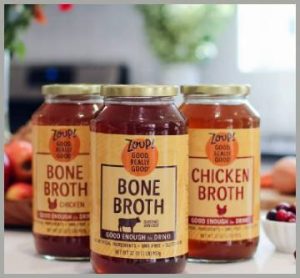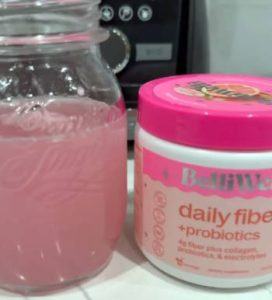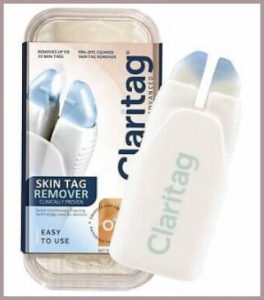I’ve spent months exploring collagen supplements, curious about their promises for better skin, stronger nails, and healthier joints. My focus narrowed to two popular brands: Zena Nutrition and Vital Proteins.
In this article, I’ll share my firsthand experience comparing Zena collagen versus Vital Proteins, breaking down their features, benefits, and drawbacks. You’ll get a clear, engaging look at what sets them apart, helping you decide which might fit your wellness goals.
From taste to price, I’ve got you covered with an analytical yet conversational take.
A Brief Comparison Table
| Feature | Zena Nutrition Collagen | Vital Proteins Collagen Peptides |
| Collagen Type | Types I & III | Types I & III |
| Form | Liquid | Powder |
| Collagen per Serving | 2,500 mg (VERISOL Bioactive) | 20,000 mg |
| Additional Nutrients | Biotin (5,000 mcg), Vitamin C | Vitamin C, Hyaluronic Acid (Advanced) |
| Flavors | Mixed Berry, others | Unflavored, Chocolate, others |
| Servings per Container | 60–90 | 14–38 |
| Price per Serving | ~$0.50–$0.67 | ~$0.71–$1.07 |
| Sourcing | Bovine, Grass-fed | Bovine, Grass-fed, Pasture-raised |
| Dietary Notes | Non-GMO, Gluten-free, Dairy-free | Paleo, Whole30, Gluten-free |
My Journey With Collagen
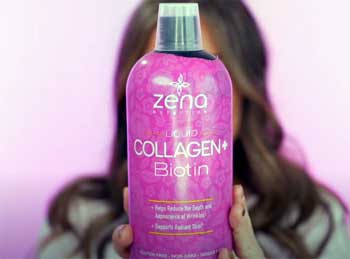
Collagen supplements caught my attention when I noticed my skin losing its bounce and my knees creaking more than usual.
I’m in my late 30s, and while I eat well and exercise, I wanted something extra to support my body.
After hearing buzz about collagen’s benefits—smoother skin, stronger hair, less joint pain—I decided to try it.
Zena Nutrition and Vital Proteins stood out on shelves and online, so I gave both a shot over several months.
Here’s what I learned, starting with what makes each brand tick.
Zena Nutrition Collagen: What’s the Deal?
Zena Nutrition’s collagen comes as a liquid, which was a new experience for me. I tried their Mixed Berry flavor, and it felt like sipping a light juice rather than a supplement.
Each 10 mL serving packs 2,500 mg of VERISOL Bioactive Collagen Peptides, specifically Types I and III, known for supporting skin elasticity and nail strength. What intrigued me was the addition of 5,000 mcg of biotin, a vitamin linked to hair and nail health, plus a dose of vitamin C to boost collagen absorption.
I took Zena daily for three months, mixing it into water or drinking it straight. The convenience of a liquid meant no scooping or stirring, which suited my busy mornings. After about six weeks, I noticed my nails growing faster and feeling less brittle.
My skin seemed a touch smoother, especially around my forehead, though the changes were subtle. I didn’t see dramatic hair growth, but my ponytail felt slightly thicker.
The price—around $40 for a 20.3 oz bottle with 60 servings—worked out to about $0.67 per serving. A larger 30 oz bottle with 90 servings dropped the cost to roughly $0.50, making it budget-friendly compared to some competitors.
Zena’s collagen is sourced from grass-fed bovine, and it’s free of GMOs, gluten, and dairy, which aligned with my dietary preferences.
Pros of Zena Collagen
- Convenient Liquid Form: No mixing required—just pour and drink. Perfect for rushed days.
- Tasty Flavors: Mixed Berry was pleasant, with no chalky aftertaste.
- Biotin Boost: The 5,000 mcg of biotin seemed to help my nails grow stronger.
- Affordable: At $0.50–$0.67 per serving, it’s a solid value for a liquid supplement.
- Subtle Skin Benefits: My skin felt hydrated and slightly firmer after consistent use.
- Clean Ingredients: Non-GMO, gluten-free, and dairy-free checked my boxes.
Cons of Zena Collagen
- Lower Collagen Dose: Only 2,500 mg per serving, far less than some powders.
- Subtle Results: Skin and hair improvements were noticeable but not transformative.
- Bottle Design: The cap was tricky to open, and I spilled some once or twice.
- Limited Joint Support: I didn’t feel much relief in my knees, possibly due to the lower dose.
- Flavor Fatigue: After weeks of Mixed Berry, I craved variety.
Vital Proteins Collagen Peptides: My Experience
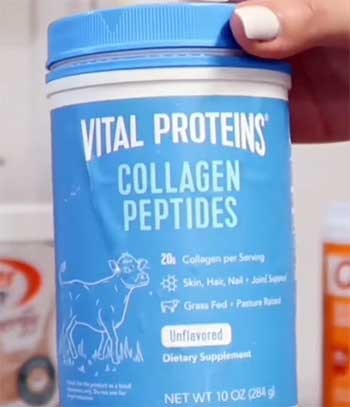
Vital Proteins is practically a household name in collagen circles, and I started with their unflavored Collagen Peptides powder.
Each two-scoop serving delivers a hefty 20,000 mg of collagen—Types I and III again—from grass-fed, pasture-raised bovine.
Some versions, like the Advanced formula, toss in 100% daily value of vitamin C and 120 mg of hyaluronic acid, which supports skin hydration.
Mixing the powder into my morning coffee was my go-to.
It dissolved well in hot liquids, though I noticed slight clumping in cold water unless I shook it vigorously.
The unflavored version lived up to its name—no taste or smell, which I appreciated.
I also tried the chocolate flavor, which was decent in smoothies but a bit grainy with just water.
After two months, my skin felt noticeably plumper, especially around my cheeks. My hair didn’t change much, but my nails were rock-solid.
The biggest win was my joints—my knees felt less stiff after runs, a huge plus. At $27 for a 9.3 oz tub (about 14 servings) or $47 for 20 oz (around 28 servings), it cost $1.07–$1.68 per serving. Buying at Costco brought it down to about $0.71 for the larger size, but availability varied.
Pros of Vital Proteins
- High Collagen Content: 20,000 mg per serving felt like a serious dose.
- Joint Relief: My knees thanked me after a few weeks of use.
- Versatile: Unflavored powder blended into anything—coffee, soups, you name it.
- Skin Wins: My complexion looked brighter and more hydrated.
- Trusted Brand: Grass-fed, pasture-raised sourcing and clean labels gave me confidence.
- Flavor Options: Chocolate and others added variety for smoothie fans.
Cons of Vital Proteins
- Pricey: At $0.71–$1.68 per serving, it’s a bigger investment.
- Mixing Hassle: Cold liquids required extra effort to avoid clumps.
- Serving Size: Two scoops felt like a lot to measure daily.
- Packaging Bulk: The large tub was cumbersome in my small kitchen.
- Availability Issues: Costco stock was inconsistent, forcing me to shop around.
Key Features of Zena collagen And Vital Proteins
Let’s talk specifics. Zena’s liquid form is a game-changer if you hate scooping powders. Its 2,500 mg of VERISOL collagen is lower than Vital Proteins’ 20,000 mg, but VERISOL is backed by studies for skin elasticity, which I found promising.
Zena’s biotin addition targets hair and nails, and I did see nail growth, though my hair results were meh. The vitamin C in both brands helps your body use collagen better, but Zena’s dose felt sufficient without overwhelming.
Vital Proteins, meanwhile, brings raw power with its 20,000 mg dose. That’s eight times Zena’s collagen per serving, which likely explained my joint relief.
The Advanced formula’s hyaluronic acid was a nice touch—I noticed my skin stayed hydrated even in dry winter air. Vital Proteins’ powder offers flexibility; I tossed it into oatmeal, shakes, even baked goods.
But the mixing process could be a chore, especially on groggy mornings.
Sourcing matters to me, and both brands use grass-fed bovine collagen. Vital Proteins emphasizes pasture-raised, which might appeal to ethically-minded folks.
Zena’s non-GMO and gluten-free labels matched Vital Proteins’ Paleo and Whole30 certifications, so they’re neck-and-neck on clean ingredients.
- Price and Value: Where’s the Sweet Spot?
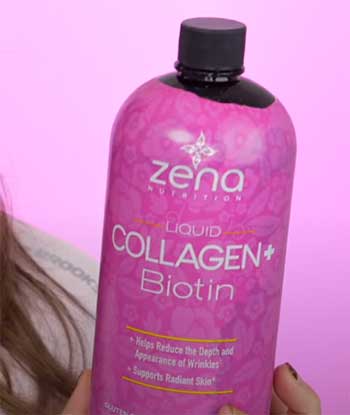
Money talks, right? Zena’s $40–$60 bottles (60–90 servings) kept costs low at $0.50–$0.67 per serving.
That’s easier on the wallet, especially if you’re after convenience and don’t need a massive collagen hit.
Vital Proteins’ $27–$47 tubs (14–38 servings) ranged from $0.71–$1.68 per serving.
The Costco deal was a steal, but without it, Vital Proteins felt like a splurge.
Value depends on your goals.
If skin and nails are your focus, Zena’s targeted formula and lower price make sense.
If joints or overall wellness matter more, Vital Proteins’ higher dose justifies the cost—assuming you’re okay with mixing powders.
- Taste and Texture: The Daily Reality
I’m picky about supplements tasting weird, so I was relieved Zena’s Mixed Berry flavor went down easy. It was sweet but not sugary, though after two months, I wished for more flavor options. The liquid texture was smooth, no grit or residue.
Vital Proteins’ unflavored powder was a blank slate—perfect for my coffee but boring alone. The chocolate version was okay, but the grainy texture bugged me in plain water. For texture, Zena won; for versatility, Vital Proteins took the crown.
- Results: What Actually Changed?
Here’s the real talk: collagen isn’t a miracle. With Zena, my nails were the biggest success—harder, longer, no peeling. My skin looked a bit fresher, but I didn’t ditch my moisturizer. Joints? No major difference.
Vital Proteins was a different story. My skin glowed, my knees felt looser, and my nails were like steel. Hair stayed about the same for both, though I wasn’t expecting Rapunzel-level growth.
The difference likely comes down to dosage. Vital Proteins’ 20,000 mg is a heavy hitter, and studies suggest 10,000–20,000 mg daily for joint and skin benefits.
Zena’s 2,500 mg is tailored for skin (VERISOL studies use similar doses), but it’s less potent overall. Your results will depend on what you’re targeting—skin, joints, or both.
Which Fits Your Lifestyle?
I’ll be honest: choosing between these depends on you. Zena’s liquid is a no-brainer if you’re always on the go or hate measuring scoops. It’s cheaper, tasty, and great for nail and skin tweaks.
But if you’re after serious joint support or want to customize your collagen intake—say, adding it to recipes—Vital Proteins’ powder is your pick. The higher dose and flexibility outweigh the mixing hassle for me, but I missed Zena’s grab-and-go vibe on busy days.
Digging Into The Science
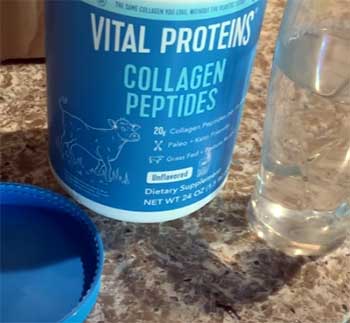
I’m no scientist, but I looked into what backs these products. Collagen Types I and III, found in both brands, are key for skin, hair, nails, and connective tissues.
Zena’s VERISOL has studies showing improved skin elasticity and reduced wrinkles at 2,500 mg daily—my subtle skin improvements align with that.
Vital Proteins’ 20,000 mg dose matches research on joint health, where 10,000 mg or more can ease pain and stiffness, which tracks with my knee relief.
Biotin, in Zena, supports keratin production for nails and hair, though 5,000 mcg is high—most people need far less.
Vital Proteins’ hyaluronic acid (in Advanced) hydrates skin, and I felt that plumpness.
Both brands lean on grass-fed bovine collagen, but Vital Proteins’ pasture-raised claim might edge out for sustainability fans.
The Not-So-Glamorous Side
No product’s perfect. Zena’s bottle was a pain to open, and the lower dose left me wanting for joint support. Vital Proteins’ powder clumped in cold drinks, and the price stung without a bulk deal.
Both took weeks for results—collagen’s not instant gratification. I also wondered about long-term effects; some studies question whether supplemental collagen always turns into usable collagen in the body. Still, my experience leaned positive for both.
Making The Call
After months of testing, I lean toward Vital Proteins for its robust dose and joint benefits. My knees felt better, and my skin loved the hyaluronic acid boost. But Zena’s convenience and nail perks kept me hooked for travel or hectic weeks.
Your choice hinges on priorities: budget and ease? Zena. Max results and versatility? Vital Proteins. Either way, consistency is key—collagen works best with daily use.
Also Read: Is Applied Nutrition Liquid Collagen Worth It?
Frequently Asked Questions (FAQ)
Effectiveness depends on your goals. Vital Proteins offers a higher dose for joints and skin, while Zena’s VERISOL and biotin target skin and nails well.
Zena uses Types I and III VERISOL Bioactive Collagen Peptides from grass-fed bovine, focusing on skin elasticity and nail strength.
Costco’s stock varies by region and demand. Vital Proteins is still available there, but check online or other retailers if it’s missing locally.
Jennifer Aniston has endorsed Vital Proteins, specifically their Collagen Peptides, in past campaigns.
Wrapping Up
You’ve got options with Zena collagen and Vital Proteins, and I hope my experience helps you pick the right one. Zena’s liquid is affordable, tasty, and perfect if you want quick doses for skin and nails.
Vital Proteins brings a powerhouse dose for joints and glowy skin, though it’s pricier and needs mixing. Whatever you choose, stick with it—you’ll see the best results with patience. Let me know how it goes for you!

